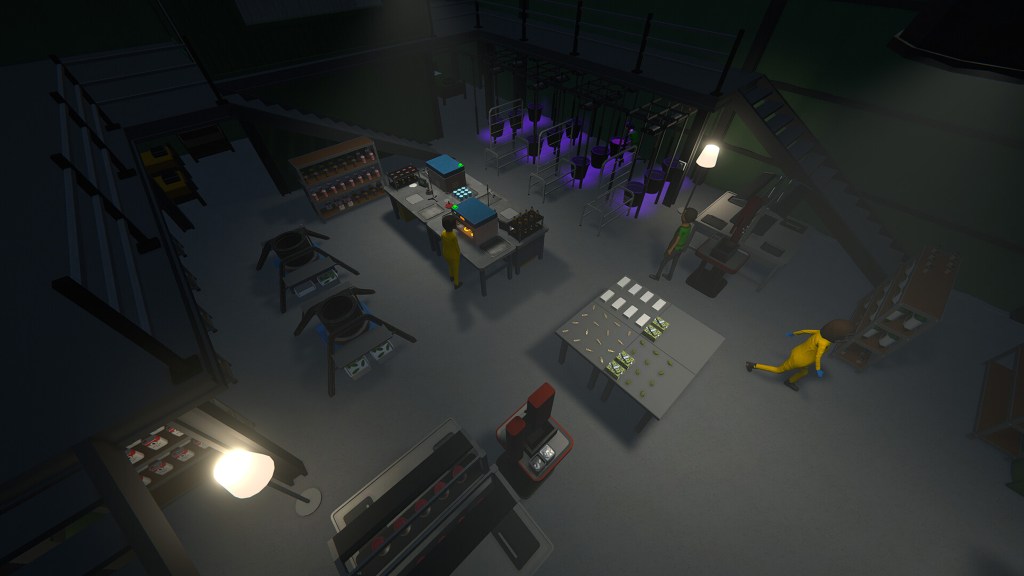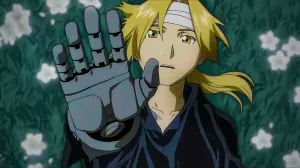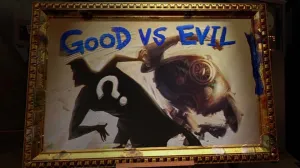Schedule 1 has become one of the most well-known indie games on the market, with the solo-developed title exploding to over 100,000 concurrent players on Steam when it first launched into Early Access in late March. Tapping into a clearly underserved market and developing a dedicated fanbase, there is no argument that Schedule 1‘s drug-dealer-simulation mechanics are something that appeal to a wide audience of gamers. However, playing the game myself has sparked the somewhat uncomfortable question: how ethical are satirical drug simulation games, and could Schedule 1 even be bad for certain impressionable gamers?
Videos by ComicBook.com
Schedule 1 is a title that maintains a large, closely knit community of gamers, due in large part to the solo developer’s close relationship with the player base. Much like a real-life drug dealer, the game owes most of its sales to word of mouth, spreading through friend groups and indirectly advertised by YouTubers who found the game to be a refreshing take on the tycoon or simulator genre. There is certainly a lot to love about Schedule 1, from its goofy character designs to its somewhat open world nature. But at the end of the day everyone is playing Schedule 1 for the same reason: to live the fantasy of going from a small-time weed dealer to a major drug cartel, a fantasy that is made more involved with each new update to the game.
The game is also hardly the first to appeal to this fantasy. Drug Dealer Simulator, Dope Wars, and Grand Theft Auto (to an extent) all deal with the idea of dealing drugs and making big bucks in the process. Breaking Bad, one of the biggest cultural touchstones in TV history, also dealt with both the appeal and consequences of turning to selling drugs to make money, and perhaps (alongside Scarface) is one of the most influential sources of the Narco or Cartel fascination that has captured the minds of audiences since the so called “War on Drugs” started.
The aspects of these stories that usually appeal to people are the thrill of breaking the law and engaging in dangerous activities, the satisfaction of being a self-starter business (albeit an illegal one), and above all, the lavish lifestyle and big profit that can come from selling an illicit product.
Now, before we go any further, we all know that violent video games don’t make violent people. Just because you can do something in a video game doesn’t mean you want to do it in real life, and there is no study that conclusively links violent video games to real-world crime, despite what some angry mothers in the 90s and early 2000s would like you to believe. I am not here to make the argument that playing a video game is going to change who you are or convince you to commit crimes on its own, nor do I think games like Schedule 1 should be taken down or censored in any way.
Do I, however, think Schedule 1 might glorify drug dealing, and could even plant the idea in the impressionable mind that drug dealing is a viable business plan? Yeah, I kind of do.

RELATED: 7 Major Connections Between Breaking Bad & Better Call Saul Characters
A major difference between the connection of violence in games and profit in games is just that: profit. In our society, there is very little that triggers a dopamine response quite as easily as making money. Killing someone or kicking a chicken in a video game has never once made me think about doing it in real life. However, every single tycoon or business management game where the player starts with nothing and builds a fortune, every story about a successful startup in real life, every show where someone comes up despite the odds, has made me at least briefly consider the possibility of trying their job or scheme in real life. Yes, this includes drug dealing; Schedule 1 made me think about it, Breaking Bad made me think about it, and you can bet Scarface made me think about it.
The problem is that Schedule 1 does not do enough to convince you that drug dealing isn’t very viable. What punishments are there for getting caught in Schedule 1, as the game exists right now? A rival cartel blows your RV up at the start of the game, your uncle goes to prison, and getting caught makes you pay a fine. Despite all of this, you still end up back out on the street, your uncle still helps you run your business from behind bars, and you still go from dealing weed from your RV to a multi-millionaire in a matter of months.
At what point is Schedule 1 even a satire? Its world has some funny jokes and the characters have silly designs, but I struggle to remember a time when the game actually satirizes the business. There is no point in the game that I can remember where drug dealing is criticized, poked fun at, or even shown to be difficult or dangerous, beyond the occasional fight between NPCs, which, to be honest, is rare and trivial in danger. Essentially, everyone in the city wants your product, hiding goods from cops is easy, and again, the game chases that potentially dangerous dopamine spike that is collecting fat stacks of cash and expanding your operation.
It is not far-fetched at all to imagine Schedule 1 convincing someone that drug dealing just might be their way to make it big. Every chance the game has to satirize, criticize, or otherwise show the danger of dealing drugs, it instead chooses to show how easy it is, how much profit it can make you, and how popular you can be with your local community by doing it. It is, at the end of the day, glorifying drug dealing, and at least in the game’s current state, it would be pretty hard to argue otherwise.
Besides the implications of glorifying drug dealing, the question has to be asked how ethical it is for a game like Schedule 1 to have players actively engage in creating hard substances like methamphetamine. Let’s forget how realistic the process is and just think about what the association of meth and meth production, or any other hard drug for that matter, with dopamine spikes do to a person’s mind.
When I think about Schedule 1, I recall a moment I spent with a close family member watching the show Breaking Bad. This family member had a past substance abuse problem, specifically with meth. I didn’t think for a moment what watching people on TV prepare and use fake meth did to their recovering mind. It was only when someone else came in and pointed out how dangerous that kind of media is for recovering addicts, and for the family member to confirm that it was, in fact, making them want to use again, that I realized what I was doing by showing the show to them. Schedule 1 could very well have the same effect on its players.
Again, I’m not saying that Schedule 1 is going to turn people to drug abuse. I’m also not saying that it is the game’s responsibility to avoid material that might trigger a relapse in recovering addicts, nor do I think the game shouldn’t exist or should be censored in any way. However, I invite the conversation about whether or not a game like Schedule 1 is entirely ethical, if we should pay attention to the impact it could have on its massive player base, and if it does enough to actually satirize and show the dangers of the illicit lifestyle it has players engage in. Who’s to say what impact this kind of game will have on its audience ten years down the line?








